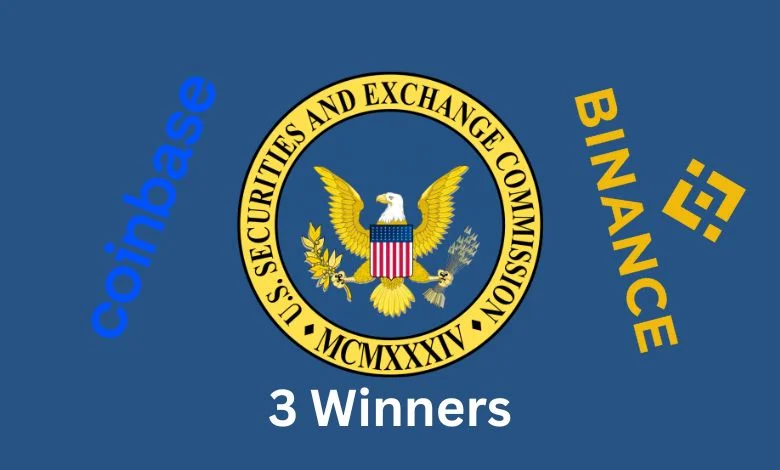- Court ruling on XRP security status: Complex implications unfold.
- XRP sales deemed non-security for retail investors, but security for institutional investors.
- Ripple faces allegations of violating securities laws in institutional sales.
On July 13, 2023, a US judge ruled that Ripple Labs Inc. did not violate federal securities laws by selling its XRP tokens on public crypto exchanges. This remarkable judgment has significant implications for the crypto industry. In response to the ruling, XRP surged more than 70%. Additionally, Coinbase, which had previously banned XRP trading, has now reinstated trading of XRP on its exchange, as stated on Twitter yesterday.

According to CoinMarketCap data, the market cap of XRP surged from $24 billion to $46 billion, nearly doubling its market cap. This significant increase in market value reflects the positive impact of the recent ruling on Ripple Labs Inc. in the ongoing legal case. Investors and market participants have responded enthusiastically to this development, driving the surge in XRP’s market capitalization.
Crypto Avanza has reviewed the documents filed on July 13 by Judge Torres and concludes that this is not a clear victory for Ripple. The SEC has achieved a partial victory, as Judge Torres determined that Ripple’s $728.9 million in XRP sales to hedge funds and other sophisticated buyers constituted unregistered sales of securities.
The SEC filed a lawsuit against Ripple and its CEO Brad Garlinghouse, along with co-founder Chris Larsen, in December 2020, alleging that the company had engaged in the offering of an unregistered security. This legal case against Ripple has been ongoing since then.
The judgment rendered by Judge Torres on July 13 presents a mixed outcome for both the SEC and Ripple Labs. The SEC’s motion for summary judgment is granted with respect to the Institutional Sales, indicating a victory for the regulatory body. However, the motion is denied in other aspects. On the other hand, the defendants, Ripple Labs, receive a favorable ruling as their motion for summary judgment is granted in relation to Programmatic Sales, Other Distributions, and the sales made by Larsen and Garlinghouse. Nonetheless, their motion is denied concerning the Institutional Sales. This ruling reflects a nuanced decision, with different outcomes for each party involved in the case.
WIN FOR THE SEC And Crypto Exchange Not Ripple
The district judge ruled that the sale of XRP on public crypto exchanges does not qualify as an offer of securities under the law. This decision was based on the fact that purchasers did not have a reasonable expectation of profit tied to Ripple’s efforts.
The Howey Test is a reference to a landmark U.S. Supreme Court case that determines whether a transaction meets the criteria of an investment contract or security. The test includes four elements:
1. An investment of money.
2. In a common enterprise.
3. With the expectation of profit.
4. To be derived from the efforts of others.
These elements help determine whether a particular transaction should be classified as a security under the Securities Act.
The Howey Test refers to the U.S. Supreme Court case for determining whether a transaction qualifies as an investment contract or SECURITY.
*An investment of money
*In a common enterprise
*With the expectation of profit
*To be derived from the efforts of others🧵1/
— Kashif Raza (@simplykashif) July 13, 2023
The recent court ruling has determined that the sale of XRP tokens on exchanges is not classified as an investment contract and is not considered a security. However, it has been determined that the institutional sale of XRP tokens violated federal securities laws. This ruling could have significant implications for Ripple, as institutions with substantial investments in the company may be affected. The outcome for XRP appears to be a mixed result, with some aspects favoring Ripple and others not, leading to a balanced situation for XRP.
The court judgment is particularly advantageous for crypto exchanges as it confirms that they facilitate the trading of XRP as a form of programmable money rather than a security. This favorable classification has prompted Coinbase to lift the ban on XRP trading, as it aligns with the court’s ruling. This development benefits both the exchanges and the wider cryptocurrency ecosystem by creating more trading opportunities and increasing participation in XRP.
so judge says ripple selling XRP to institutions is a security
but ripple selling XRP to people through an exchange is not a security because the retail investors didn't realize they were buying directly from ripple
then companies doing presales directly to investors is a… pic.twitter.com/7TeHMXSAu9
— Crypto Tea (@CryptoTea_) July 13, 2023
Bottom Lines
1- Programmatic Sale to Retail Investors:
– The court ruled that XRP was NOT considered a security when sold to retail investors.
– Retail investors made blind purchases without expecting price appreciation.
– They were unaware if the money went to Ripple, and Ripple didn’t use it for operations.
2- Institutional Sale to VCs, Hedge Funds, etc.:
– XRP was deemed a security when sold to institutional investors.
– Ripple violated laws by offering unregistered securities.
– Institutional investors had expectations of XRP price appreciation.
– Ripple pooled the money into separate accounts and used it for operations.
3- SEC Likely to Appeal:
– The SEC is expected to appeal the ruling, indicating that the legal battle is far from over.
– However, XRP and other cryptocurrencies saw a rally following the court’s decision.
– The crypto community sees this as a win, asserting that crypto exchanges cannot be held liable for selling to retail investors.


